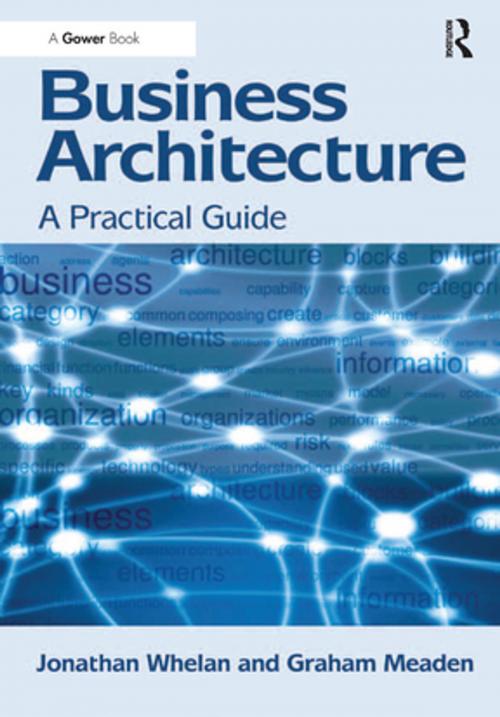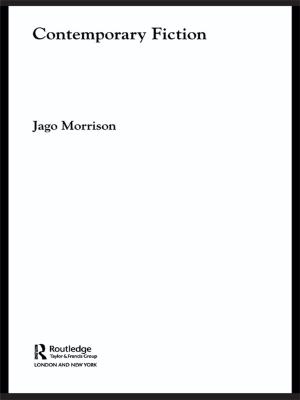Business Architecture
A Practical Guide
Business & Finance, Management & Leadership, Planning & Forecasting, Management| Author: | Jonathan Whelan, Graham Meaden | ISBN: | 9781317170648 |
| Publisher: | Taylor and Francis | Publication: | April 15, 2016 |
| Imprint: | Routledge | Language: | English |
| Author: | Jonathan Whelan, Graham Meaden |
| ISBN: | 9781317170648 |
| Publisher: | Taylor and Francis |
| Publication: | April 15, 2016 |
| Imprint: | Routledge |
| Language: | English |
Organizations today exist in an environment of unprecedented change. They do so against a backdrop of a global, competitive marketplace, the fast-paced enablement of technology, amplified regulation and accelerating organizational complexity. Many organizations are addressing change in a sub-optimal way and they are operating without a clear view of where their operational risks lie. It is these dynamics that are leading organizations to recognise and embrace Business Architecture. Despite this environment, Business Architecture can be a difficult ’sell’ - it is often perceived to be abstract and lacking in tangible delivery. To succeed, Business Architecture must be pragmatic and, to be sustainable, it must focus on achieving long-term value and, at the same time, recognise the shorter-term tactical needs of the organisation. With these challenges in mind, this book provides a practical guide on how to employ Business Architecture and how to build a balanced proposition that delivers value to a broad range of stakeholders. As the book states, Business Architecture should not be practised in isolation, nor should it be thought of as a one-off process; it needs to be woven into the fabric of the organization. And so the authors illustrate the opportunities for weaving the Business Architecture Practice into this fabric through the various stakeholders and life cycles that exist, both formally and informally, within an organization. Whilst recognizing best practice, this book explores a new, inspirational level of Business Architecture whilst acknowledging that the best way to realize the vision is one step at a time.
Organizations today exist in an environment of unprecedented change. They do so against a backdrop of a global, competitive marketplace, the fast-paced enablement of technology, amplified regulation and accelerating organizational complexity. Many organizations are addressing change in a sub-optimal way and they are operating without a clear view of where their operational risks lie. It is these dynamics that are leading organizations to recognise and embrace Business Architecture. Despite this environment, Business Architecture can be a difficult ’sell’ - it is often perceived to be abstract and lacking in tangible delivery. To succeed, Business Architecture must be pragmatic and, to be sustainable, it must focus on achieving long-term value and, at the same time, recognise the shorter-term tactical needs of the organisation. With these challenges in mind, this book provides a practical guide on how to employ Business Architecture and how to build a balanced proposition that delivers value to a broad range of stakeholders. As the book states, Business Architecture should not be practised in isolation, nor should it be thought of as a one-off process; it needs to be woven into the fabric of the organization. And so the authors illustrate the opportunities for weaving the Business Architecture Practice into this fabric through the various stakeholders and life cycles that exist, both formally and informally, within an organization. Whilst recognizing best practice, this book explores a new, inspirational level of Business Architecture whilst acknowledging that the best way to realize the vision is one step at a time.















